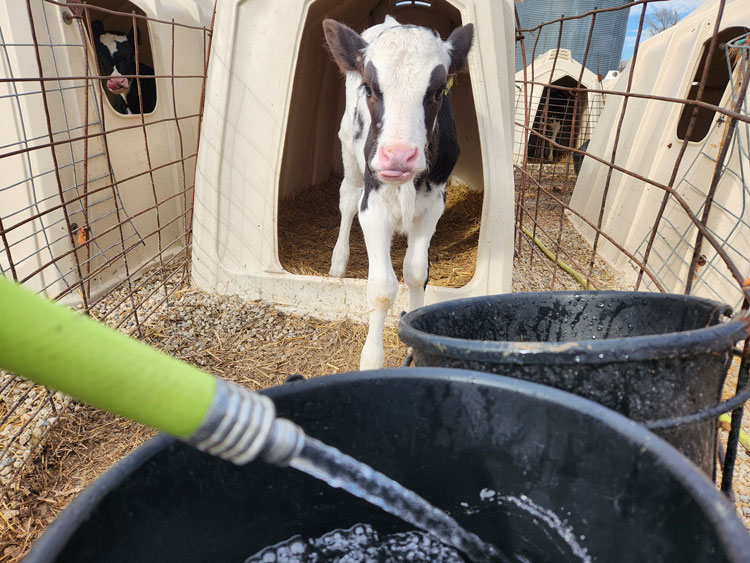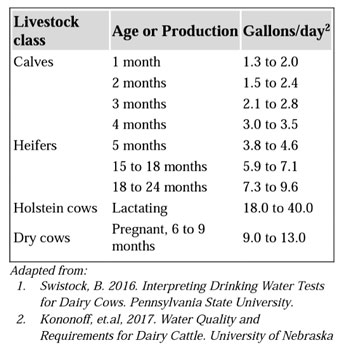
Many years ago, I competed in dairy quiz bowl, and there are several questions I distinctly remember. Perhaps the most memorable was one that went something like this: “What is the most important nutrient for dairy cattle?”
If you ever competed in Dairy Bowl, you probably know the answer is water.
Yet, when I think of all the nutrients — and other details — that I worry about on a daily basis as a dairy farmer, water rarely crosses my mind. Because of its availability and relative ease to provide, it only garners attention when it is a problem.
In a recent Virginia Dairy Pipeline article, Jeremy Daubert, a dairy extension agent, detailed the importance of water and the often-overlooked keys to providing it well.
“Animals must maintain the proper balance of water in their body for biological functions to happen efficiently,” he shared. “Cows lose water in a variety of ways, including through respiration, perspiration, fecal and urinary losses, and in lactating cows primarily through milk production — which is approximately 87% water.”
Because of this, the most recent Nutrient Requirements for Dairy Cattle (NRC) released the table below to simplify estimating drinking water needs.
Table 1: Drinking water requirements of dairy cattle: 1,2

It’s important to note that amount of water required varies, especially in lactating cows. Many factors including age, climate, and lactation status heavily way on these estimates.
With these requirements in mind, ask yourself what kind of water is provided on your farm. Is it clean, high quality, and have you tested it?
“Water sources should be tested periodically to ensure good quality,” Daubert emphasized. “Many quality problems with water cannot be seen and require laboratory analysis before a quality determination can be made. The water test should include pH, total dissolved solids, bacteria, and coliforms at a minimum.”
The extension agent posed listeners with this challenge: “Would you drink that water?”
“If the water in the troughs is not clean enough that you would drink out of them, then it is not clean enough for the animals,” he said. “The troughs should be cleaned often. How often depends on several factors including the number of animals using it, size of the trough, and the time of year.”

The author is a dairy farmer in Kansas and a former associate editor at Hoard’s Dairyman. Raised on a 150-cow dairy near Valley Center, Kansas, Maggie graduated from Kansas State University with degrees in agricultural communications and animal sciences.











